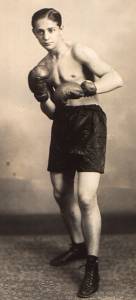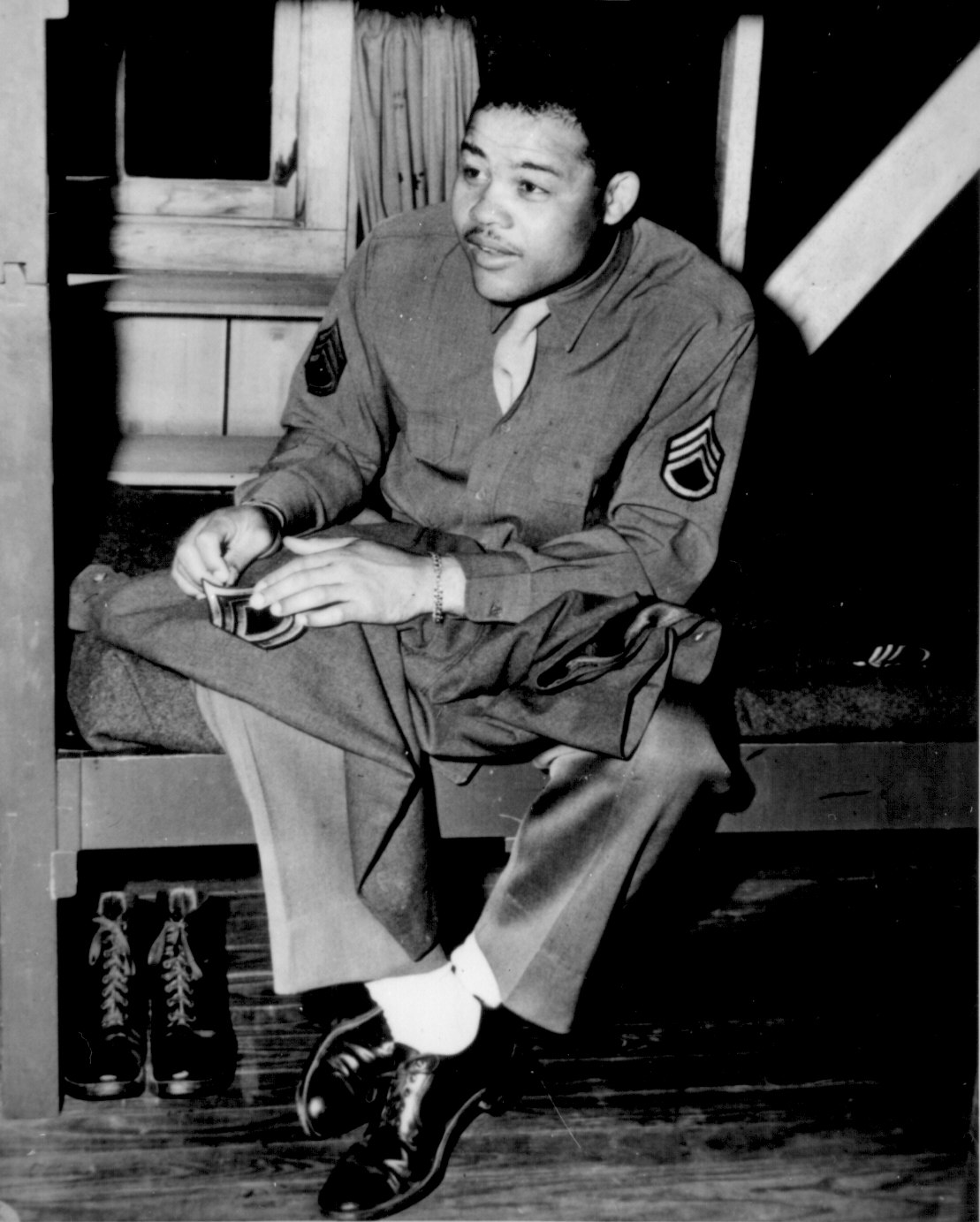Technical Sergeant
Joe Louis
U.S. Army
|
|
A beautiful matching pair of vintage Spalding gloves signed by heavyweight champion Joe Louis as Technical Sergeant of the United States Army... Also signed by former fighter turned referee Ruby Goldstein... Both signatures are signed in black fountain pen ink and are very bold considering their age, ca. 1945... Signatures were obtained at an exhibition bout while Louis was serving the U.S. Army... Louis was promoted to Technical Sergeant on April 10, 1945 and was released from the army on October 1, 1945... Nicely displayed in a leather mirror-backed display case... Louis is very rare on a glove in vintage form!!
measures: each glove 7.5 x 5.5", display case
17"L 8"H 7"D
condition: some overall staining and aging to both gloves, an abrasion by
Goldstein's signature (top glove)
$4,000
$50 shipping & ins.
|
|
||
|
 Ruby Goldstein in his prime as a prizefighter. |
 "World Heavyweight champ Joe Louis (Barrow) sews on the stripes of a technical sergeant---to which he has been promoted...", 04/10/1945 Courtesy of National Archives and Records Administration. |
|
|
||||
![]()
home page